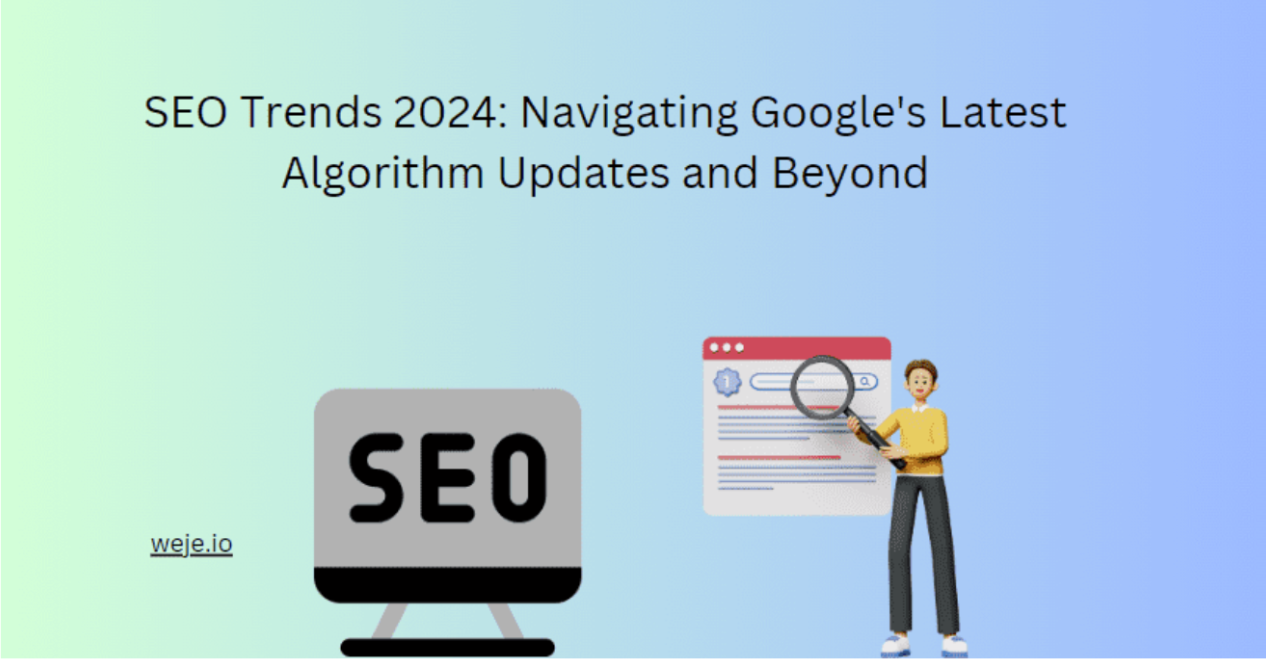SEO is still going strong in 2024. Google is still the biggest search engine, and digital marketing is still focused on making websites rank at the top of the search engine results pages.
However, there have been new developments in the SEO industry. The updates to the search algorithm are quite cyclical. They introduce new changes or just fine-tune previously made changes.
Some of them are unique to 2024, while others have just gained more prominence this year. In this article, we have listed all the SEO trends that you need to watch out for in 2024.
We have also listed reasons why these trends are useful for you and how they might change in the future. With that said, let’s check them out.
SEO Trends in 2024
These are the five core trends that you need to know about.
1. The Basics Haven’t Changed
The basics of SEO have not changed that much. Good content, keyword research, and EEATs are still just as valuable as they were before. The better your content is, the higher its rank will be. Keywords are still used to determine the search intent as well as the rank of the content. So, none of that is going to change.
Simply put, even if you keep doing SEO the same way you already have, your search results rankings won’t change much.
However, there have been some additions to the E.E.A.T (Experience, Expertise, Authority, Trustworthiness) standard. Now, Google puts more stock in the author. Suppose the author has proven credentials and experience, i.e., research papers on said topic, a degree in the subject, and other high-ranking articles on the subject matter. In that case, their content will be ranked higher.
So, make sure that you have some social profiles and portfolios linked in your author bio so that Google can crawl them and realize your experience and expertise. This also means that ghostwriters should start a side hustle writing for themselves to avoid poor rankings when they inevitably start their own blog.
2. User Signals are Far More Important
Google has not really improved much at understanding whether your content is good or not. However, it has become tremendously better at recognizing which content is gaining more user engagement and retention.
Google tracks a few metrics, such as dwell time and bounce rate, which provide insight into user experience. The better these signals are, the better your search rankings will be.
The most successful examples of this are tools that have little to no tool content and only provide a great user interface, which aids in swift and efficient use. Such tools are used by people, and the UX signals sent by these interactions ensure that the webpage for these tools ranks high.
This approach of measuring user signals also weeds out controversial content, such as rage bait articles that only seek to drive artificial engagement. So, make sure you avoid such unscrupulous methods and stick to making content that is helpful to your audience. Of course, you also need to look at the technical side of things to ensure that user signals are good. For example, website loading speed dramatically affects bounce rate.
You need to check the impact of images and plugins to keep the loading time low. Also, regular testing is required to ensure the site is accessible at all times. This includes doing a DNS record lookup, testing with multiple browsers and devices, and older operating systems.
This will help you identify any problems in advance and tackle them quickly so that your website remains accessible.
3. SGE is Going to Become Relevant
SGE, or search generative experience, is Google’s answer to Microsoft Bing AI. Basically, there is an experimental AI on Google that pulls the answers to your queries from the internet and presents them in a short and concise format using simple wording.
This means that users can get succinct, to-the-point answers to their queries. Thus, they no longer have to read through big articles to find their answer.
SGE is still in its infancy. Google warns that its AI may not give correct answers and that users should double-check its responses. However, even with that drawback, it is worth it to optimize your content for it. SGE’s like to take content from snippets and knowledge panels. They also provide links to any sources they use to formulate their answer.
If you optimize your content for snippets, more AI answers will use it. Any user who is looking for a detailed answer may come to your website using the link provided by the AI.
Most people are worried that they will lose traffic to the AI answers, but that is not true. The only traffic lost will be the minuscule amount of people looking for pinpoint answers. Most of the websites will benefit from getting more traffic from people who are looking for detailed answers.
4. Alternatives Search Types have Matured
There are many different types of searches, and they all have their own rankings. For example, voice search results are different from text search. Similarly, local searches have different results than global searches.
It is lucrative to target these alternative searches to get more traffic. This is because these types of searches have matured a lot. More and more people have access to convenient ways for voice searching, such as Alexa, Siri, and Google Assistant.
Voice search also fulfills a role similar to SGE. Most voice searches are for pointed questions with short answers. So, optimizing for snippets will net you a piece of that pie.
Similarly, local searches are great for businesses that operate in a small area. They can use local SEO to compete against much easier competition and get more traffic from their area.
Visual search is another alternative type of search that is quite lucrative. With apps like Google Lens and reverse image search, it has become easier to find items online. People use it for shopping, finding artists, or just for finding the source of an image.
Optimizing for alternative search is big in 2024 because of the maturity of these technologies and the sizeable growth they have achieved.
5. Mobile First Design and UX is More Important than Ever
As the numbers for mobile traffic grow every year, it becomes more important to design websites for mobile devices first. In 2024, the average web traffic coming from mobile devices accounts for over 60%.
That is quite a bit higher than 50%. This means that more people use their phones rather than their computers to do searches. Google also has had a focus on mobile first design for quite a while now.
Google will index your mobile site before the desktop one. It will also rank your site based on the performance of the mobile version. For these reasons, it is paramount that your SEO efforts are focused on your mobile site.
The better the user experience of your mobile site is, the better its ranking will be. So, if you want to be successful in SEO in 2024, opt for mobile-first design.
What’s in the Future?
SEO, for the most part, is not going to change much in the future. The basics will remain the same. AI content supplemented with human experience and expertise will be quite common and even rank high.
Alternative search will remain just that: “alternatives.” They are a good source for getting extra traffic, but nothing to break your back over.
Mobile-first design and optimization is here to stay. It is just too convenient to use a phone to do a quick search. So, that should remain a core focus.
SGE will improve, but it probably won’t dethrone standard text search. That’s because it is not yet capable of providing detailed answers. So, informative, long-form content is going nowhere for the foreseeable future.
Conclusion
So, there you have it. The five trends listed are what you can expect from Google algorithm updates. No matter what changes they make, these trends are not going to change much.
High-quality content that answers questions and provides actionable information will always be king. As long as you can produce that, your website SEO will always be good.
AI and whatnot are ultimately just tools for making your job easier. They cannot replace you because AI simply rehashes what’s already there. It cannot create new content. So, human SEO experts will always be in demand.
Published: August 23, 2024





